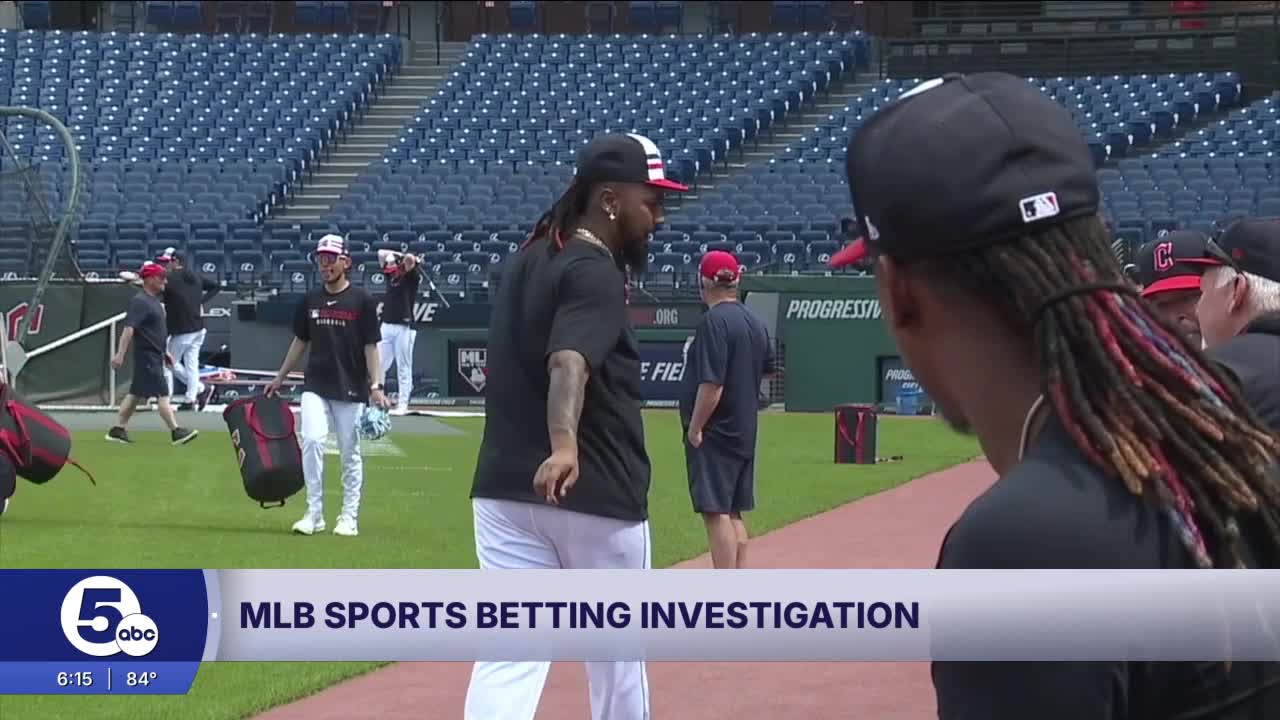CLEVELAND — As the Major League Baseball investigation continues in the sports betting probe into Cleveland Guardians pitchers Emmanuel Clase and Luis Ortiz, fans are still stunned by the reversal of fortunes it means for their team, but admit they're not totally surprised.
"A little sad, but you never know what goes on in baseball," said Keith Kallay of Pepper Pike.
Fellow Guardians fan Walt Stone added, "I think with gambling and sports, that has entered sports legally, that you're probably going to get more of that."
Clase was placed on non-disciplinary paid leave through Aug. 31 as part of a sports betting investigation that began with fellow pitcher Ortiz. Both men are presumed innocent as the investigation continues.
While no details have been released on what led investigators to look into Clase, ESPN reports that in the case of Ortiz, it had to do with bets placed on first pitch balls he threw in two games in June.
The bets were flagged by gambling integrity monitor IC360, which partners with sports books, college conferences and sports leagues, including the MLB, NBA, NFL and NHL, among others.
"They look at everything, and they have so much data that they are able to identify first pitches as we're seeing in the case of the Guardians pitchers," said Ryan Butler, Senior News Analyst with Covers.com. "They even can get so granular as they look at umpires, how often they call balls and strikes."
Butler has had the opportunity to see the volumes of data firms like IC360 collect on every play, in every game and every sport.
We saw it just after sports betting was launched in Ohio in 2023, when the Ohio Casino Control Commission halted all bets on the University of Alabama baseball, a betting integrity monitor reported suspicious wagering activity. The NCAA found that Head Coach Brad Bohannon provided inside information to someone he knew to be engaged in betting on an Alabama baseball game.
That individual attempted to then place a $100,000 bet on the game, but sportsbook staff limited him to a $15,000 bet and declined his attempts to place additional bets, according to the NCAA investigation. Bohannon was fired two days later in connection with the scandal.
"A college baseball game, a WNBA game, something smaller Division II basketball game, they're not going to get a whole lot of handle," Butler said. "If they're seeing $7,000 or $10,000 bets on one of these smaller games? It raises red flags immediately."
"Also, every single bet, they know where it's placed with a legal sports book. We know exactly to the foot where it is placed. Do we see all of a sudden 30 first pitch ball bets all placed in the same vicinity, all around the same time? That raises red flags as well."
The concern among many is the wide range of prop bets, like a first pitch, that are a single play in a long game that carries little impact on the outcome, but carries the same economic windfall as a bet on a win or a loss.
Ohio became one of the first states to ban prop bets in college sports following the harassment of players, but it still allows them in the professional ranks. Some say it might be time to rethink that.
"I think it would definitely help mitigate problems like this, so, yeah, I think that would be a logical thing to look at," said baseball fan Tom Goslee.
State Senator Nathan Manning, who has studied gambling in Ohio and is a sponsor of one of the iGaming bills in the legislature, said it might be wise to let the investigation play out.
"Somebody I was just talking to said knee-jerk reactions don't usually make great policy," he said. "But if there are concerns out there, under Ohio law, Major League Baseball could petition our Casino Control Commission and ask them to remove certain bets," he said, adding that the fact that possible irregularities were found shows the system is working.
"I think we need to pump the brakes a little bit, but at this time, I don't think we should ban all prop bets. Should we look at some of these individual ones, first pitch ball? Possibly."
"The fact that they caught this is a sign that it's working," added Butler. "It makes you kind of think that the scarier reality is over the last 125 years, how often has this happened and no one was able to have the resources to look at it."





